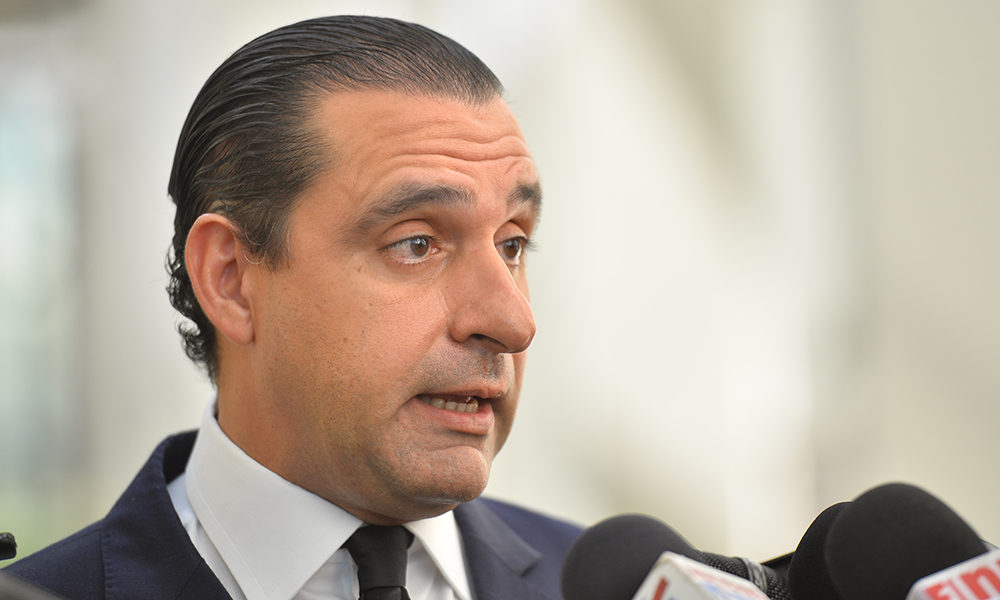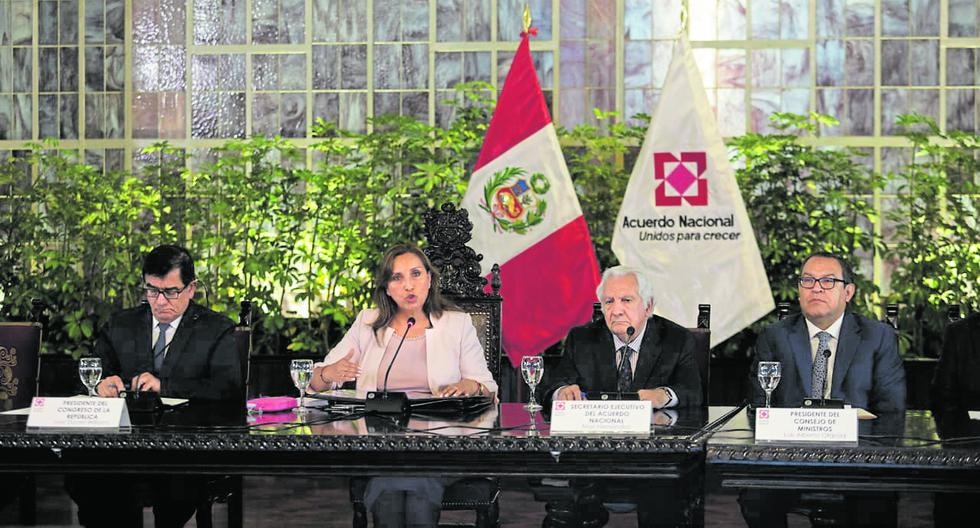The Fundación Institucionalidad y Justicia, Inc., (FINJUS), spoke today about the existing debate around public trusts.
Below is a full comment from FINJUS:
In recent weeks, an intense and interesting debate has taken place around the bill on public trust, which was deposited in the Senate of the Republic on March 2, 2022, approved by it on May 22 of the same year, and currently in the process of knowledge by the Chamber of Deputies (the “Project”).
In the first place, as FINJUS has already highlighted on previous occasions, the public trust is a relevant figure that, when used properly, can generate important benefits for the State, making different projects and initiatives viable. Likewise, on previous occasions we have highlighted that the adoption of Law no. 189-11 for the Development of the Mortgage Market and the Trust and its modifications and application regulations (the “Law 189-11”), has meant a milestone for the development of the trust figure in a general sense, being necessary its complement through the particular regulation in the case of public trusts, which are those where the State is the settlor, that is, the person who contributes assets or rights of their patrimony for the management or execution of works, goods, services or projects of public interest.
We consider the reasons behind the particular regulation of the public trust to be obvious. It is a mechanism that, although it can be effective and efficient for the achievement of efforts or projects of social relevance, it is still a tool that compromises the patrimony and rights of the State and, therefore, of all Dominicans.
Faced with this initiative, FINJUS recognizes and values in its fair dimension the interest shown by the Executive Power in providing our system with a legislative body that can remedy the traditional regulatory vacuum with which this figure has operated for more than a decade, as well as well as the disposition shown both by it and the National Congress for the debate and the contributions in its improvement.
In this context, FINJUS considers it pertinent to contribute to the process by sharing its reflections on the main aspects currently being discussed, on this occasion based on the version approved last May 2022 by the Senate of the Republic, for which it must be recognized the important improvement work, incorporating numerous observations made during the process, including some of those raised by the Foundation itself.
One of the essential aspects that is brought up in any regime in which, like the public trust, the State uses market tools for its functioning or operation, is whether this can constitute a way of diversion and transfer of its functions. essential. In this sense, the Project highlights that the cases that may be subject to execution in the public trust modality must be considered of “public interest”. Consequently, this requirement will translate into an ideal opportunity to require that the State, when declaring an initiative of this type, make a clear -and not generic- foundation on the reasons that support this path as the most suitable for its achievement and effectiveness. .
On the other hand, the issue of the procurement and contracting regime continues to be central in this case. We consider that it is not possible to interpret that the Bill skips or ignores the purchasing and contracting regime provided for in Law No. 340 and its amendments, but rather, on the contrary, references its application to it, particularly by observing its guiding principles. Although a reference to its principles may seem somewhat general, what ends up closing the circle in this case is that, as provided for in the paragraph of article 13 of the Project, each trust must operate based on its own regulations previously submitted to and approved. by the General Directorate of Public Procurement (“DGCP”).
The foregoing makes sense because it allows that, by not making an indistinct reference to the regime of Law No. 340 and its amendments, the different public trusts may respond or adjust to a purchasing and contracting regime that, although under the same principles, will respond to the reality of each structure, at the same time that, by submitting the particular regulations to the approval -which is not just registration- of the DGCP, it will obtain the review and approval of the governing body of this system within the Dominican State. Each regulation, therefore, will have a binding character that, in any case, may not disregard the principles of law already in force, avoiding processes contrary to its spirit. Here it is worth remembering the importance of continuing and completing the approval process of the modification for updating and modernizing the current Procurement and Contracting Law No. 340.
A complement to the above is the transparency and information regime provided for in the Project. This refers -via its article 14-, the regime of access to public information of public trusts to the provisions of the General Law of Free Access to Public Information No. 200-04, through the figure of the trustee. The Project correctly takes advantage of this provision to expressly lift the so-called “trust secrecy”, typical of trusts in general, avoiding the use of this confidentiality rule to limit access to information that is -by vocation- public.
Another aspect highlighted in the current debate has been related to the supposed capacity of public trusts to create public debt. On the one hand, the Bill provides that when national income is compromised or affected, State assets are disposed of, loans are raised or when tax exemptions are stipulated in general, these cases will be subject to the approval of the National Congress in accordance with the rules constitutionally provided. In addition, it provides, as is common in all trust regimes, that the trust assets created will be autonomous and, therefore, separate -for the purposes of special affectation- from the rest of the settlor’s assets -which in this case would be the State-, and subjected or tied in a particular way to the object and guarantees of the trust to which it was contributed.
On the other hand, in this sense, the Project establishes that, except for express exception, the debts, loans and other obligations of the public trust will only be guaranteed by the trust patrimony, at the same time that these will not have additional guarantee or endorsement from the State, as neither character of public debt. It provides that the only debts payable to the State -as settlor- will be those previously validated and registered in the National Public Investment System (SNIP).
Although the foregoing establishes what we consider a reasonable framework for limiting State indebtedness and the use of the sovereign guarantee, it is worth echoing the voices of other analysts on the subject and suggesting that the Bill may expressly prohibit the use of instruments or third parties interposed to achieve -via a kind of triangulation- transferring debt from trusts to the State, for all that this implies. At the same time, we consider it important to expressly provide that the obligations assumed by a public trust must be documented and, above all, duly substantiated, so as to avoid at all costs the issuance of debt or obligations in charge of the trust for that third parties execute or adjudicate goods or rights of the State. Intentional actions such as these, in turn, must be part of the consequences regime in charge of trustees and other officials linked with responsibility for the management of autonomous assets that are created.
In the same way, it is worth commenting on this occasion, as we have done previously in our comments to the original Project, regarding the obligation that the trustee must be a state-owned entity. As is known, in our law on trusts, the trustee is the entity or legal person -registered as a commercial company- in charge of the management and administration of trusts, in accordance with the constitutive act. However, by application of article 221 of the Constitution, it is evident that a law -such as the one proposed- cannot grant a privilege in favor of state companies that operate in a free market regime, as is the case of trust companies. . In short, by constitutional rule, the Bill cannot establish that state trustees are the only ones that may act in such capacity in the case of public trusts.
In the same way, this occasion is propitious to join reputable voices that have advocated that the Project establish rules that prevent public trusts from becoming a source of diversion for the massive hiring of personnel or, as we have commented before, for the detachment of activities that do belong to the State, and that would not meet an objective test that demonstrates the need to carry them out through the public trust.
Finally, in previous comments we consider that instead of sending the regulation of public trusts to the Superintendency of Banks, this could be done via the Monetary and Financial Administration, of which said Superintendency is a part, and whose general regulatory power rests with the Board monetary However, our previous comments should not be an obstacle to assessing the fact that -as the Project does- a regulator is assigned with the technical capacities of the Superintendency of Banks, who already plays this important role in the supervision of intermediation entities. financial, including even trust companies and trusts when related to the banking system.
Finally, we welcome the receipt of our comments on the initial Project, and that from them an express regime of infractions and administrative sanctions in charge of the supervisory body has been included, ruling out the idea of a regulatory referral in this sense that, for its character obviously contrary to the constitution, would be voidable.
We end our reflection by once again highlighting the important progress that has been made in the analyzed piece, as well as the interest that our public powers have shown for the public trust to become a figure with regulation and a delimited framework for action. This occasion is also propitious to invite to take into consideration that the public trust should not be seen as an end in itself, but as a tool to help the State in structuring projects and initiatives of public interest, for which reason the Legislation that is finally approved should be a safe but viable channel to achieve that end.
The State must be able to act and operate in the markets with sufficient capacity so that its actions achieve optimal ends of collective interest, and thus generate stability, growth, and social and economic well-being. The foregoing invites us to avoid -based on populism- returning or not leaving rules and notions designed for other times or other figures not compatible with the times in which the markets live, and to visualize our State as an entity capable of acting for the good of society by following these globally proven trends and canons. Obviously, all of the above should not prevent citizens from assuming a leading role in monitoring and constructively criticizing what the State does, including the requirement to align its actions with the correct and beneficial purposes for each and every one of the Dominicans. .















